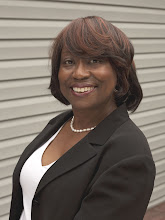
By Anna D. Banks, GCDF
Except for the wealthy, the basic goal for almost all retirement planning is to ensure that your assets last, and your cash flow remains steady, for as long as you live. At the end of a regularly earned salary, balancing your retirement income against your total household expenses must be the focus of all further financial planning. Due to an increasing life expectancy, keeping the cash flow going has become increasingly critical. The average American, retiring at 65, can expect to live for at least another 20 years. So, it is essential that you don’t let the cash flow stop, even after retirement. Although the details of the strategies to accomplish that would vary according to your income, your lifestyle, and state of health, there are some basic moves that will help you to live adjust your income and balance it against your expenses.
If you are about to retire, or have already taken the big leap, you must first gather and organize all of the pertinent information to help you to manage your cash flow during retirement. Gathering this information, will give you an overview of where your finances stand, as of now.
• Get the latest net-worth statement for a quick look at your total assets, debt, and cash reserves.
• Make itemized monthly and annual budgets, with details of your income as well as expenses.
• Make sure you include all expenses, including rare ones like insurance, and club membership fees, as well as what you pay for investment management.
This information should tell you if there are major problems you might have to deal with. This could be anything from lack of an emergency buffer to an income shortfall. This information may also throw up areas for improvement, like the possibility of finding additional cash by eliminating unnecessary expenses. One thing to keep in mind is that even if you make reasonable assumptions today about returns, inflation, and living costs during your retirement, all of these may change, affecting your cash flow. Monitoring your income and expenses on a regular basis can help you address these changes as they arise, preventing major glitches later. Look for developments with the potential to affect your cash flow. For example, interest rates may change, and stock markets vary, causing a change in your income from savings or investments. Adjustments may become necessary, like reducing your expenses or altering your investment mix to add alternate sources of income.
Relocation to another state may change federal, state, or local tax rates with a bearing on your cash flow. While changes in the benefits from or eligibility for Social Security and Medicare and private insurance coverage can have a huge impact on living costs, circumstances like marriage, and the increase or decrease in the number of dependents can also throw your cash flow out of whack.
Pay close attention to cash flow, make sure you budget and monitor your income and expenses, and take significant action. In addition, you need to find a way to make the most of your savings, and maximize the cash flow from your investments while maintaining your capital. Retirement should be a time of peace and contentment.
© 2008 Anna D. Banks, GCDF
________
Author's Note:
Do you have any questions about career development or lifestyle changes for Baby Boomers, which you think others, like you, would want to know the answers? Email your questions to me at Anna@AnnaBanks.com.
Tuesday, May 27, 2008
Baby Boomers: Don't Let The Cash Flow Stop Even After Retirement
Subscribe to:
Post Comments (Atom)








No comments:
Post a Comment